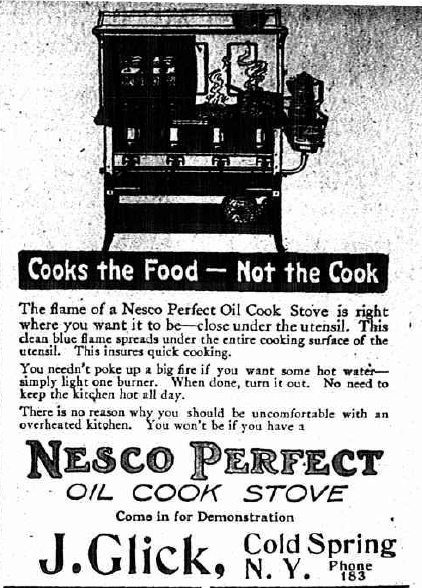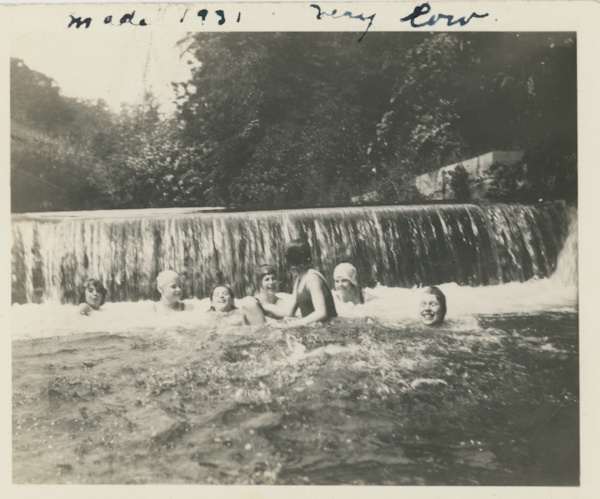250 Years Ago (May 1775)
Following a patriot battle with the British on April 19 at Lexington and Concord that kicked off the Revolutionary War, the 100-member New York Committee recommended each man arm himself and seek military training. It also ordered residents of Staten Island, a Loyalist stronghold, to stop selling provisions to British ships in the harbor.
James Duane, a delegate from New York, traveled to Philadelphia to ask the Continental Congress what to do if the British attacked New York City. Congress decided to form a committee.
Cadwallader Colden, a former New York governor who had a home near Newburgh, wrote to officials in London to report the “state of anarchy and confusion into which this province has run since the actual commencement of hostilities.”
A congressional committee recommended that King’s Bridge in Manhattan and the Hudson Highlands be fortified, and that the New York Provincial Congress raise an army of 3,000 men.
150 Years Ago (May 1875)
Charles Odell of Mollysville [Nelsonville] reported that a 25-year-old willow basket in his cellar that he had filled with potatoes in the fall had rooted into the dirt floor.
A West Point sergeant was taken to an insane asylum. “Considerable force was necessary in getting him on the train,” according to The Cold Spring Recorder.
The Methodist Episcopal Church held its annual pew renting.
A West Point cadet, C.S. Hall, was fatally injured when he was thrown from his mount during a cavalry drill.
Archibald McFarland of Nelsonville moved to Detroit.
The Cold Spring Village Board voted to raise $391.21 [about $11,400 today] in taxes to settle two judgments against the village.
A group of ferry passengers ran to catch the last southbound train of the day as it pulled out. The engineer spotted them, blew the brakes, shut off steam and stopped the rear car across Main Street so they could board.
James Haldane set out on a railroad trip to San Francisco.
A Garrison woman burning a pile of brush destroyed 40 acres of woods.
The new store wagon of James Dykeman had locals wondering if it had been purchased abroad. But it was the work of J.H. Boyce & Sons in the North Highlands.
The Recorder reported that, at 10 p.m. on a Tuesday, three men had a running fight down Kemble Avenue “with clubs, stones and German adjectives.”
The Rev. Benjamin Bowen, who had been dismissed by the trustees of the First Baptist Society of Philipstown but promised a one-year contract renewal by rogue parishioners, found himself in court after being accused of trespassing. Stephen Mekeel testified that he had bolted the door and posted a notice from the trustees that the church was closed. He later heard pounding and saw Bowen kicking in a panel. “He put his hand through the opening, unbolted and unlocked the door and went in,” Mekeel said. When he came out, Bowen tore down the notice. The court set bail at $250 [$7,300]. The following Sunday, Bowen led services at Town Hall.
Samuel Hadden, formerly of Nelsonville, was arrested in Yonkers on suspicion of stealing a horse. He was allowed one telegraph.
125 Years Ago (May 1900)
Mr. Hunkele bought Truesdell’s pickle plant on Market Street and offered farmers $1.25 cash [$48] per 1,000 cucumbers that were 3 inches or longer.
Fishermen were catching so many shad, they were having trouble disposing of them, according to The Recorder. One Garrison fisherman caught 280 in one drift.
A blind tenor performed a 90-minute concert at the Baptist Church. “All present were inspired to better thoughts and to live a nobler life,” said The Recorder.
William Murphy, an umbrella mender, pleaded guilty to sneaking into Mary McClary’s home and stealing a pair of gold-rimmed spectacles.
Gov. Theodore Roosevelt enacted a bill that allowed Cold Spring and Nelsonville to require street merchants to get local business licenses. The village set peddler fees of $3 to $10 [$114 to $381], depending on the goods.
The commissioner of highways filed a complaint against Peter Orthman of North Highlands for cutting down trees along the highway.
W.J. Geer, a Rochester newsboy who was pushing a wheelbarrow and trunk from New York to San Francisco to win a wager, arrived in Cold Spring.
A lawsuit filed against Julia Butterfield over the estate of her first husband, Frederick James, was back in court. When James died in 1884 in Cold Spring, leaving a $2 million [$65 million] estate, his wife received half its $25,000 [$952,000] annual income; the other half went to Frederick’s siblings and their children. A nephew sued Butterfield, and a court ordered her to pay $102,000 [$3.9 million]. She argued that, because it cost $25,000 annually to manage the estate, there were no funds to distribute.
After several cadets broke the electric light in front of J. Kelley’s saloon, Officer McCaffrey visited West Point to have a talk with them and returned with $10 [$380].
Web Warren of Nelsonville raised a disturbance because his son had been thrashed for missing school. “Web seems to think he can defy the compulsory education law,” said The Recorder.
The Mohican Association of Haymakers raffled off a barrel of flour at its Memorial Day picnic.
Ann Crawford, who lived alone on Main Street, had not been seen for a few days, so neighbors forced entry and found her in bed. She said she was OK but didn’t want anyone around. With great difficulty, the neighbors forced her to eat.
Carrie Ireland, a servant for Mrs. William Lawson, who lived at Main and Chestnut, narrowly escaped death when a spark from the kitchen stove set the back of her dress afire. Mrs. Lawson smothered the flames with a coat.
A Phoebe songbird built a nest in the wheelhouse of Barrett’s mill. When the wheel was in motion the water sometimes reached the nest, but the bird seemed satisfied with the location.
Officer McCaffrey was called to the foundry to arrest a laborer named Westin who had been fired but refused to leave the premises.
A cold snap destroyed thousands of tomato plants in the North Highlands.
A permit was granted to the steamer General Slocum to land at the U.S. Military Academy with a party of young Brooklyn schoolteachers. “June 2nd will be a great day at West Point,” said The Recorder.
The Highland Golf Club hired a Japanese chef and a Japanese steward.
The 21-month-old son of Sherman Mekeel died of the measles, which he contracted after recovering from the whooping cough.
The railroad informed Alexander Tait and H.S. Butler, express deliverymen between Poughkeepsie, Cold Spring and New York City, that they could no longer carry packages aboard the trains, forcing them out of business.
100 Years Ago (May 1925)
The state Public Service Commission granted a franchise to Central Hudson to provide service in Cold Spring. The Village Board asked the Cold Spring Light, Heat and Power Co., which lost its franchise, to remove the lights suspended over Main Street, and Central Hudson sent 200 men to erect white cedar poles and string wire.
The Haldane school board passed a resolution to memorialize a longtime trustee that began: “Whereas the Eternal Father has summoned our fellow townsman, Gerald V. Grace, to the Mysterious Realm, where each must take his chamber in the Silent Halls of Death…”
Bear Mountain Park began charging 25 cents [$4.50] for parking, 5 cents [$1] for dances at the pavilion and 50 cents per hour [$9] for rowboat rentals. Officials said state funding did not cover maintenance.

The North Highland Cemetery Association hosted its annual Community Day.
Charles Mosher, Cold Spring’s oldest resident, died at 93. Known as “Squire,” he was born in the old stone house on the family farm at Breakneck.
Negotiations were completed for Smith’s Garage in Nelsonville to be converted into a movie theater called The Playhouse.
Members of the Loretto Fourth Degree Assembly cleaned up the burying grounds on Mountain Avenue.
Walter “Chubby” Daniels purchased the McCarty property at Main and Kemble occupied by a meat market and a barbershop.
Inspector Lynch of the Albany Automobile Bureau, who had recently been on duty in Cold Spring, was arrested in Hastings. According to a couple whom Lynch pulled over, he used profane language while asking for a driver’s license and shoved a police officer who came upon the scene.
An accounting filed in state court showed that Anna Harden-Hickey, 60, daughter of John Haldane Flagler, a Cold Spring native and founder of the National Tube Co., had trust funds worth $750,000 [$13.7 million]. For the previous 18 years, she had been an unresponsive patient at a sanitarium in Connecticut. At her death, the estate would pass to her uncle, Harvey Flagler. [The next month, one of Anna’s uncles wrote to The Recorder to say that, far from being unresponsive, his niece lived in a beautiful stone villa and “does talk and knows her friends when they visit her. She goes automobiling every day, also walking, reads French and English books, plays cards and plays selections from famous operas on the piano… Whoever gave you this information that she did not know anyone, you have been badly misinformed.” Anna lived another 25 years.]
75 Years Ago (May 1950)
Robert Nelson, a junior at Haldane High School, was selected for a summer indoctrination course [internship] at Central Hudson.
Mr. Neilson posted a notice asking that “the party who borrowed the roll of wire fencing” from his property on Albany Post Road “kindly return it at night the same as you borrowed it and there will be no questions asked.”
Walter Cocking, who was a science teacher and band director at the Haldane Central School from 1936 to 1947 before becoming a professor at the Alabama Polytechnic Institute [now Auburn University], was killed in a car crash in Georgia. A funeral service was held at St. Mary’s Church in Cold Spring.
The Haldane baseball team defeated Peekskill Military Academy, 7-1, but had to put Manager Ronald Monroe in uniform because several players were at a track meet in Carmel. Monroe went 1-for-2 and scored a run.
The New York Telephone Co. raised its rates for the first time in 20 years — to $3.75 [$50] per month — but said the phones that could be reached through the operator without an additional toll would increase from 1,300 to 6,600 in Cold Spring and 1,300 to 9,900 in Garrison.
John Lyons of Parsonage Street was an Army file clerk in Yokohama, Japan.
The Cold Spring Village Board created a Zoning Commission to recommend boundaries and regulations.
50 Years Ago (May 1975)
A 31-year-old Peekskill man driving a Bill’s Food Market van was killed in a four-car crash on Route 9 about a mile north of Travis Corners Road.
The new county clerk, Joseph Peloso, asked the Board of Supervisors to remove the switchboard extension from the Records Room and install a public payphone.
Haldane students presented the Cold Spring board with a petition asking for the construction of a bike path from the North Highlands to the village.
The Hand-to-Mouth Players at the Depot Theatre opened its 1975 season with Enter Laughing, which had debuted on Broadway in 1963 starring Alan Arkin.
Bernie Dillon died at age 73. The Seattle native, who came to Cold Spring as a trainer for the late heavyweight boxer Ray Impellittiere, helped organize the Philipstown Little League in 1952 and served as its president from 1953 to 1971.
Twenty-one Haldane seniors took a three-day trip to the Pines Resort in Sullivan County. One said a highlight was “meeting a swinging group of senior citizens from Yonkers” who invited the students to play bingo and Name That Tune. In return, the students invited the seniors to “an evening of rock music.”
A Putnam County Sheriff’s deputy was called to a residence in Garrison at 10:55 p.m. to destroy a 32-inch copperhead in the cellar.
Otto Verne added 300 cast-iron garden pieces to the stock of his three-story antique store on Main Street, purchased from an Ossining estate. The pieces were scarce because many had been used for scrap metal during the world wars.
25 Years Ago (May 2000)
A 45-year-old woman suffered a head injury after jumping from a moving vehicle at Main and Church streets during an argument with the driver, who was arrested for driving under the influence.
Cathy Lilburne announced she would seek re-election to the Garrison school board. Elected in 1995, she was the last trustee to serve five years before the terms were changed to three.
For the first time in a century, white suckers (Catostomus commersoni) [below] made it past the first dam in Foundry Brook — a group of Haldane students, working with Building Bridges, Building Boats, created a “fish ladder.”
Ryan Cuneo was recognized for his 50th year as a member of the Garrison Volunteer Fire Co. He recalled in the 1960s rescuing three spelunkers trapped 100 feet down in the old copper mine at Manitou.
The Putnam County Health Department voted to restrict smoking in public buildings and required restaurants to provide smoking sections.
The Putnam County attorney told the Legislature that Robert Bondi, the county executive who earned $110,000 [$204,000] annually, was entitled to a 20 percent raise because the charter said he had to be the highest-paid employee whose salary was controlled by lawmakers. Although the district attorney’s $131,400 salary [$244,000] was set by the state, the attorney argued that the Legislature voted on it when it approved the budget. The Legislature decided, 5-4, against the move.
Robert Boyd, 85, and his sister, Elma Boyd Gregg, returned for a visit to the Office Building at the West Point Foundry, where they had grown up. Their father, who manufactured women’s silk undergarments, bought the property in 1926 to open a second plant. The Boyd family lived in the building until 1936.

Cold Spring announced that it had created email accounts for the mayor and trustees.
The Depot Theatre presented Quilters, a musical with 40 characters and 21 songs.
Haldane added boys’ lacrosse to its middle school sports, with plans for a varsity team.
Robert Millis, owner of Cold Spring Gardens, was found not guilty of violating the sidewalk code. The previous summer, he had been issued 25 tickets for refusing to remove planters from the front of his shop at 6 Market St. In his defense, Millis said the planters were not “goods, wares or merchandise” as required by the statute and that they sat within 20 inches of his building, which was not village property.
Dick Hastede, a lifelong Philipstown resident, played “Taps” on Memorial Day for the 50th consecutive year. He first played it in 1951 as a member of the Haldane school band.


